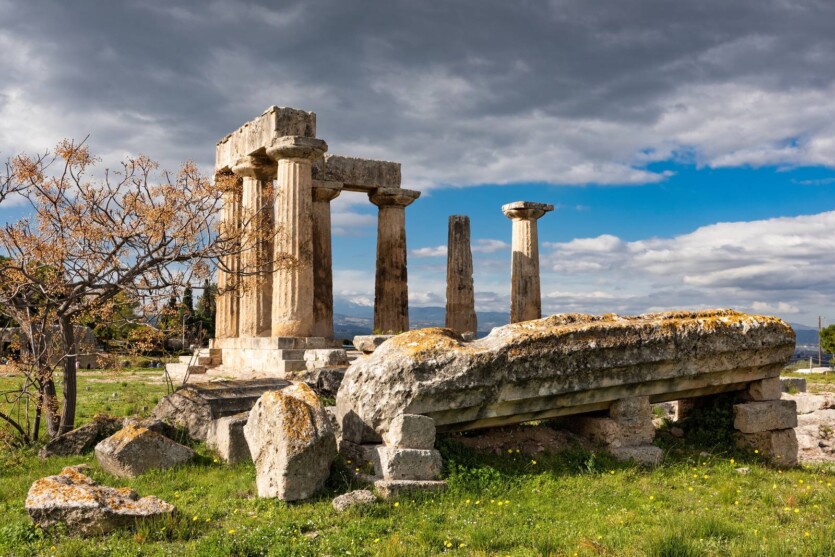
An archaeologist has identified rare remains of a Roman prison in Corinth, Greece.
Matthew Larsen, an archaeologist and associate professor at the University of Copenhagen, has discovered the remains of a Roman prison dating back to about 1600 years ago. Larsen identified the prison by carefully examining the site itself, inscriptions on its walls and floor, and by studying records of excavations in 1901.
«Historical records indicate that prisons must have existed in almost every Roman city, at least in those with a forum», — wrote Matthew in the journal Hesperia. «However, the archaeological remains of prisons have proven extremely difficult to identify. There is very little evidence of what a Roman prison looked like or where it might have been located.
A key factor in determining the purpose of the building was the numerous inscriptions left by the prisoners. They contained pleas in Greek, such as:
«May the fate of those who suffer in this lawless place prevail. Lord, show no mercy to him who has thrown us here».
An archaeologist discovered the remains of jugs and lamps in the eastern passage of the prison. These items were probably used to provide water and light to the prisoners. In addition, evidence of a small toilet was found in one of the cells.
The conditions of the prisoners’ detention were terrible. The inscriptions show that the prisoners were kept in a dark space, cut off from the outside world and deprived of the opportunity to voice their complaints. Their words, engraved on the walls, testify to the despair and helplessness of people whose voices were not heard. One inscription reads that a group of prisoners spent the entire winter in the prison, which Larsen says must have been an extremely cold experience.
Some inscriptions include images of game boards, suggesting that the prisoners were trying to have some fun. Others plead for release:
«Lord God and pure justice, redeem the two brothers from this place. Christ, protect both Budis and John…».
There are also inscriptions asking for revenge on those who imprisoned them: «Lord, let them die a horrible death» and «Mother of God, retaliate [punish] Marinos, who threw us here and made us spend the winter».
As a reminder, recently scholars managed to decipher four 4000-year-old Babylonian cuneiform tablets that predict future disasters based on lunar eclipses.
Source: Livescience


Spelling error report
The following text will be sent to our editors: